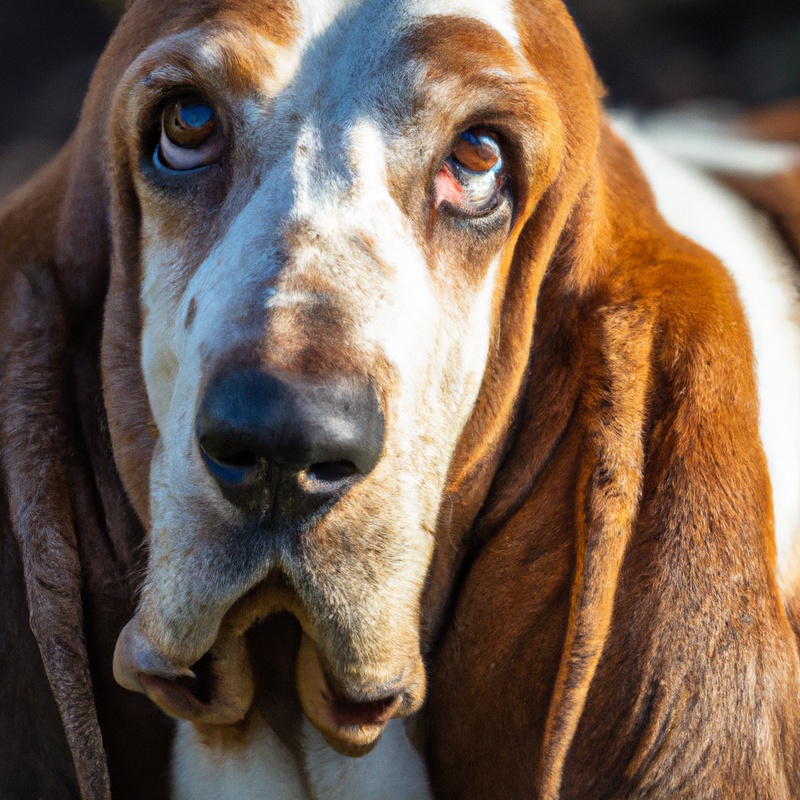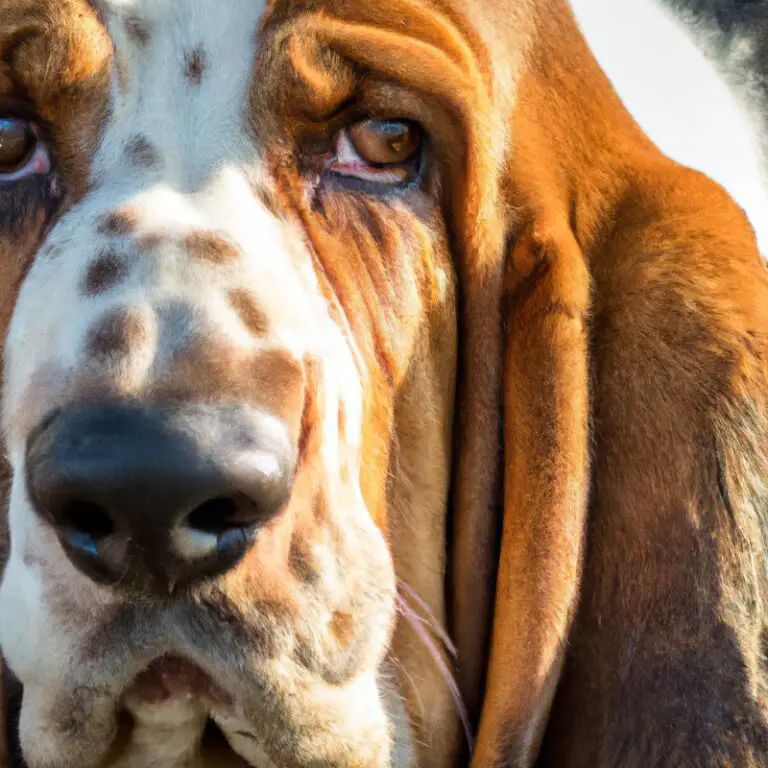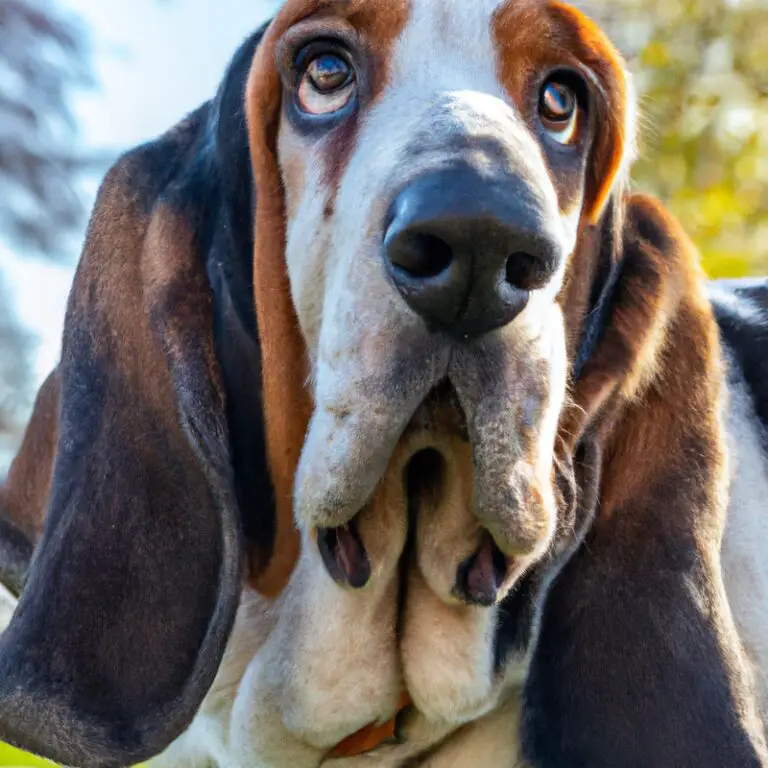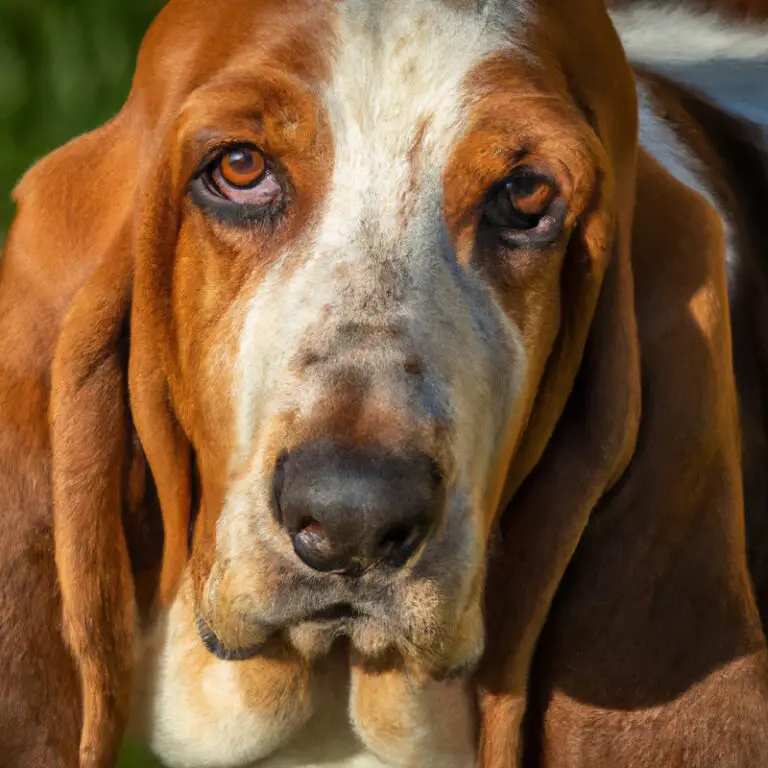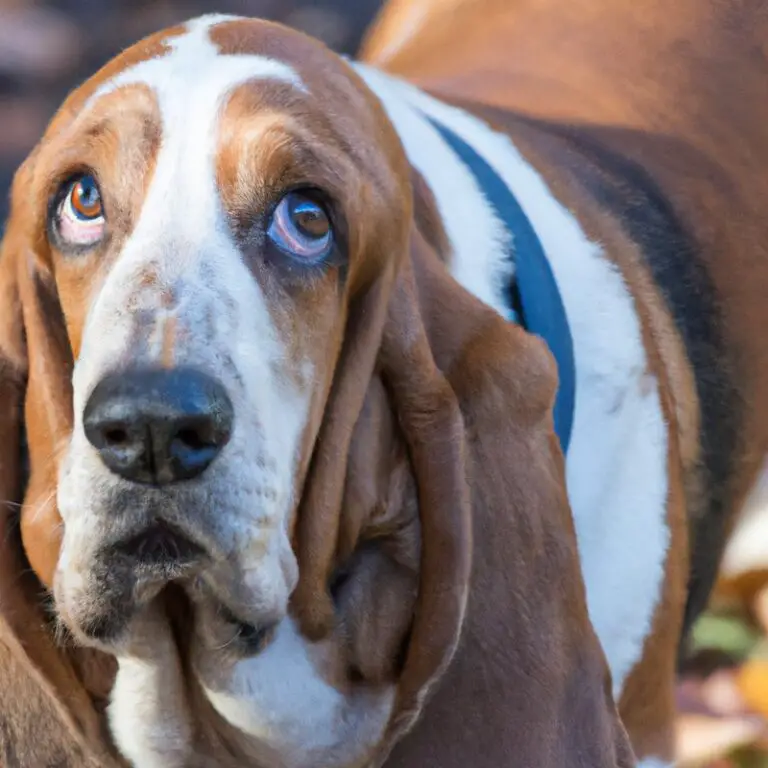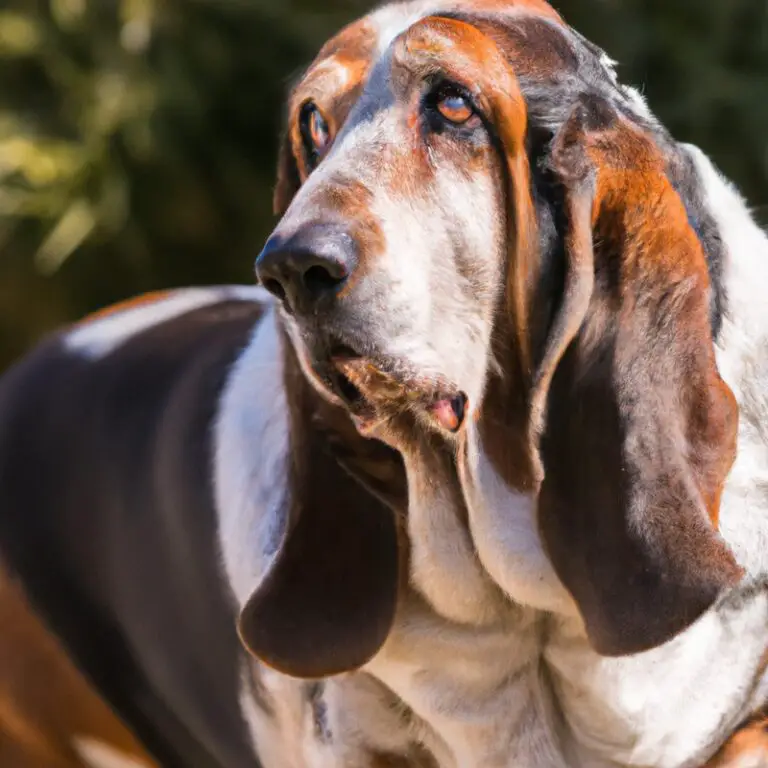How Do Basset Hounds Behave Around Unfamiliar Small Mammals?
Key Takeaways:
- Basset Hounds typically exhibit a calm and non-aggressive behavior towards unfamiliar small mammals.
- They tend to show curiosity and may sniff or observe them from a distance.
- Basset Hounds are generally not prone to chasing or hunting small mammals unless specifically trained to do so.
- It’s important to supervise interactions between Basset Hounds and unfamiliar small mammals to ensure their safety and prevent any potential harm.
Have you ever wondered how your Basset Hound would behave around small mammals it encounters for the first time?
As an expert in canine behavior, I’ve witnessed firsthand the fascinating instincts and sensory perception of these gentle giants.
Basset Hounds have a natural hunting instinct, yet their calm demeanor makes them well-suited for interactions with other animals.
In this article, we’ll explore their behavior around unfamiliar small mammals, discuss their prey drive, and provide valuable tips for introducing them in a safe and controlled manner.
Whether you’re a proud Basset Hound owner or considering adding one to your family, this guide will help you understand their behavior and ensure responsible ownership.
| Behavior | |
|---|---|
| Reaction to Small Mammals | Variable |
| Curiosity | High |
| Chasing Instinct | Strong |
| Aggressiveness | Low to Moderate |
| Prey Drive | High |
| Sociability | Variable |
| Trainability | Moderate |
Understanding Basset Hounds’ Instincts and Sensory Perception
Hunting Instincts in Basset Hounds
Basset Hounds have strong hunting instincts that are deeply rooted in their breed history. These instincts date back to centuries when they were used for hunting small game like rabbits.
Bassets have a keen sense of smell and an excellent ability to track scents, making them natural hunters.
Their low stature and powerful nose help them track and scent out small mammals. This hunting instinct can manifest in behaviors such as chasing, digging, and baying when they come across interesting scents or sights.
It’s important for owners to understand and manage these instincts to ensure the well-being and safety of their Basset Hounds.
The Sense of Smell in Basset Hounds
Basset Hounds have an incredible sense of smell that is highly developed compared to other dog breeds. This is due to the large number of scent receptors in their nose.
In fact, Basset Hounds have over 200 million scent receptors, while humans only have around 5 million.
This heightened sense of smell allows them to easily track scents and locate objects or animals. Basset Hounds are often used for scent detection tasks, such as tracking missing persons or detecting drugs.
Their sense of smell is truly remarkable and plays a crucial role in their behavior and abilities.
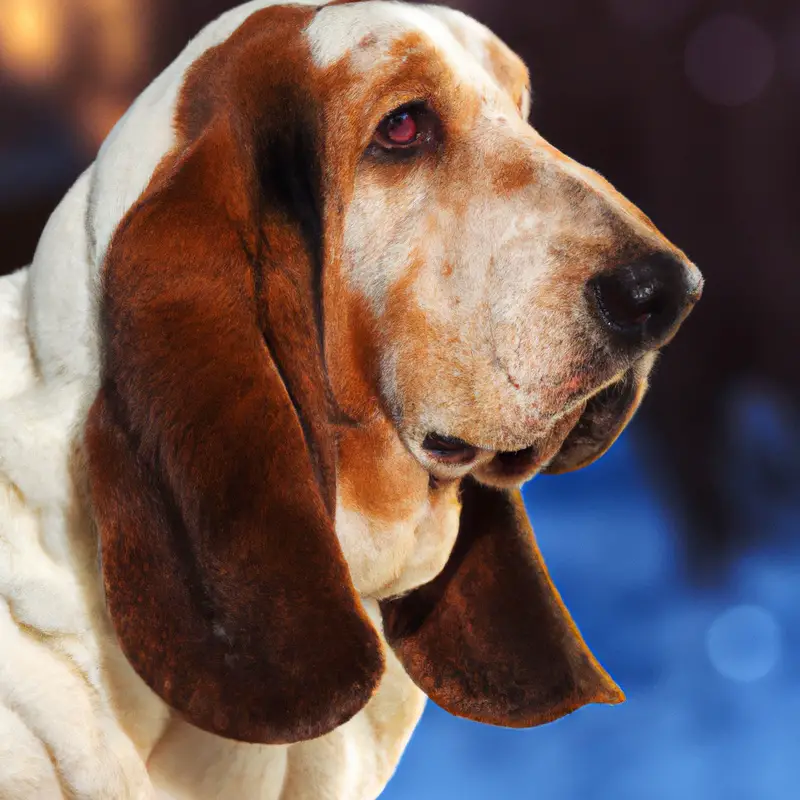
Basset Hounds’ Behavior Around Unfamiliar Small Mammals
Calm and Gentle Nature of Basset Hounds
Basset Hounds are known for their calm and gentle nature.
They have a laid-back personality and are typically very good-natured.
Bassets are generally friendly and patient, making them great companions for families and other pets.
They have a low aggression level and are not prone to being territorial like some other breeds.
Bassets are often described as being sweet, affectionate, and easygoing.
Their relaxed demeanor makes them well-suited for households with small children or other small animals.
Basset Hounds are truly wonderful pets to have around!
Basset Hounds and Their Prey Drive
Basset Hounds have a natural instinct called prey drive.
This means they are hardwired to chase and hunt small animals.
Their strong sense of smell combined with their short stature and long ears allows them to track scents and locate small mammals.
It’s important to understand and manage this prey drive when introducing Basset Hounds to unfamiliar small animals, as they may instinctively chase or even harm them.
Proper socialization, obedience training, and supervision are key to ensuring the safety of both the Basset Hound and the small mammals.
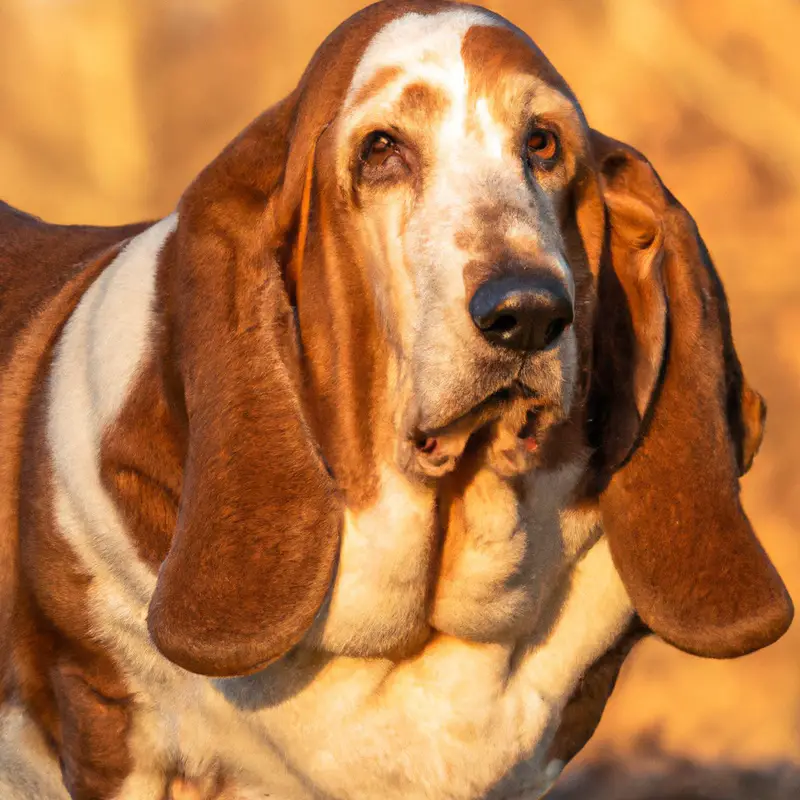
Socialization and Training for Basset Hounds
Socialization and training are essential for Basset Hounds’ well-being. By exposing them to various people, animals, and environments from a young age, they can become more confident and adaptable.
Positive reinforcement techniques, such as rewards and praise, work well in training Basset Hounds.
Consistency and patience are key. Start with basic commands like sit, stay, and come, and gradually progress to more advanced training.
Remember, proper socialization and training can help your Basset Hound develop into a well-behaved and happy companion.
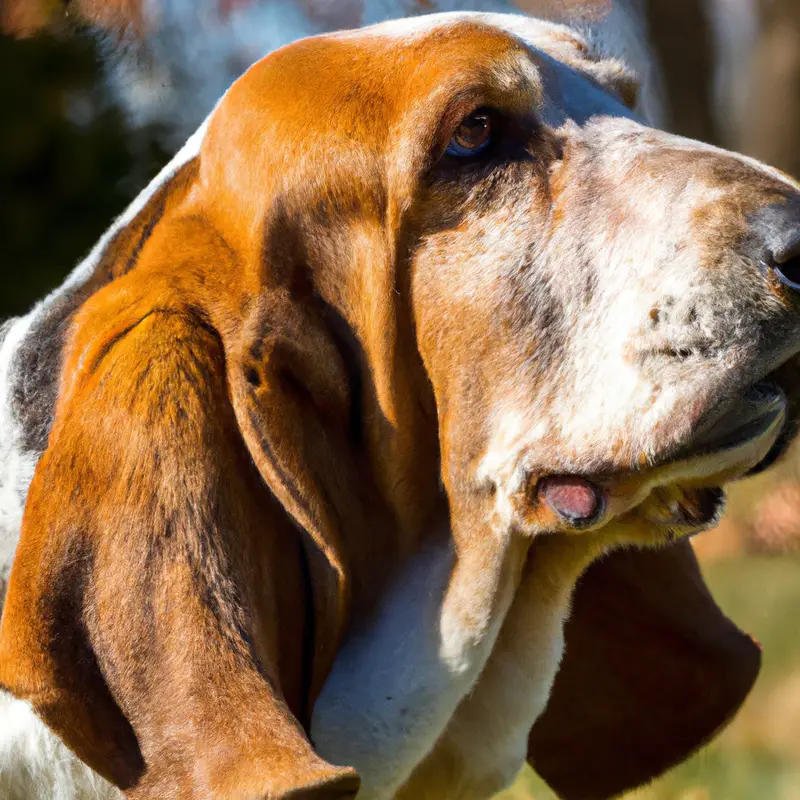
Tips for Introducing Basset Hounds to Small Mammals
Controlled Environment and Supervision
When introducing your Basset Hound to small mammals, creating a controlled environment is essential. Always supervise their interactions to ensure the safety of both animals.
Provide a separate space for the small mammals, such as a cage or enclosed area.
This allows for controlled introductions and reduces the risk of any harm. By maintaining supervision and a controlled setting, you can gradually introduce your Basset Hound to small mammals while ensuring their safety.
Gradual Introduction and Positive Reinforcement
When introducing your Basset Hound to small mammals, it’s important to take a gradual approach.
Start by creating a controlled environment where both your Basset Hound and the small mammal feel safe.
Allow them to get used to each other’s scents and presence without direct contact initially.
Positive reinforcement plays a key role in this process.
Reward calm and non-aggressive behavior with treats and praise.
This will help your Basset Hound associate positive experiences with the presence of small mammals, creating a foundation for a harmonious relationship.
Contact with Small Mammals Under Professional Guidance
If you’re introducing your Basset Hound to small mammals and want expert guidance, seeking professional help is a great idea. A professional trainer or behaviorist can provide valuable insights and advice tailored to your specific situation.
They can assess your dog’s behavior and help create a safe and controlled environment for contact with small mammals.
Their expertise will ensure that the introduction is done gradually and with positive reinforcement. With professional guidance, you can address any challenges that may arise and ensure the safety and well-being of all animals involved.
Common Challenges and Solutions
Chasing Behavior and Leash Training
Chasing behavior is instinctive for Basset Hounds, making leash training crucial. To address this behavior, I recommend starting early and using positive reinforcement techniques.
Gradually expose your Basset Hound to small mammals while on a leash, rewarding them for remaining calm.
Use a well-fitted harness or head halter to have better control during walks. Professional guidance can be valuable in managing chasing behavior and improving leash training.
By providing consistent training and supervision, you can help your Basset Hound develop appropriate behavior around unfamiliar small mammals.
Resource Guarding and Small Mammals
Resource guarding is a common behavior in dogs, including Basset Hounds.
When it comes to small mammals, Basset Hounds may display resource guarding tendencies if they see them as a valuable resource.
This could include food, toys, or even attention from their owners.
It is important to address resource guarding behavior early on through proper training and management.
By providing a safe and controlled environment, gradually introducing the Basset Hound to small mammals, and using positive reinforcement techniques, you can help minimize resource guarding behaviors and promote positive interactions between your Basset Hound and small mammals.
Separation and Small Mammal Anxiety
Separation anxiety can be a challenge for Basset Hounds when it comes to being away from their owners for extended periods. This can also contribute to small mammal anxiety, as these dogs may become distressed when separated from their familiar environment.
It’s important to gradually introduce Bassets to small mammals and provide positive reinforcement during these interactions.
Training and socialization play a key role in managing separation anxiety and small mammal anxiety in Basset Hounds. Professional guidance can also be beneficial in addressing these behavior issues.
Responsible Ownership of Basset Hounds and Small Mammals
Consideration of Small Mammals’ Safety
It is crucial to consider the safety of small mammals when introducing them to your Basset Hound.
Small mammals are often seen as prey by dogs, so precautions must be taken to ensure their well-being.
Proper training and management of your Basset Hound is essential.
Additionally, seeking professional guidance can help address any behavior issues and ensure the safety of the small mammals.
Always prioritize the safety and comfort of all animals involved in these interactions.
Proper Training and Management of Basset Hounds
Proper training and management are key when it comes to Basset Hounds.
Consistency in training from a young age is essential.
Positive reinforcement methods, such as rewards and praise, work best for these dogs.
They are intelligent and eager to please, so they respond well to this approach.
Regular exercise is also important to keep them mentally and physically stimulated.
Providing a safe and structured environment, along with clear boundaries, will help ensure a well-behaved and happy Basset Hound.
Professional Guidance for Behavior Issues
If you’re experiencing behavior issues with your Basset Hound around small mammals, seeking professional guidance is essential.
A qualified animal behaviorist or trainer can provide you with personalized advice and strategies tailored to your specific situation.
They can help you understand the underlying causes of the behavior and provide you with effective techniques to manage and modify it.
Remember, professional guidance is a valuable resource that can greatly assist you in addressing behavior issues and creating a harmonious environment for both your Basset Hound and small mammals.
Final Verdict
Basset Hounds have a calm and gentle nature, which generally makes them good companions for small mammals. However, their hunting instincts and prey drive can still pose challenges when introducing them to unfamiliar small mammals.
Socialization and proper training are essential to ensure a positive experience for both the Basset Hound and the small mammal.
The introduction should be done gradually and in a controlled environment, with positive reinforcement and professional guidance. Responsible ownership entails considering the safety of small mammals, proper training, and seeking professional help for behavior issues.
Overall, with the right approach, Basset Hounds can coexist peacefully with small mammals.

